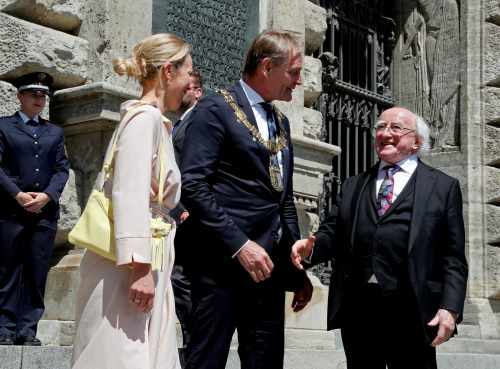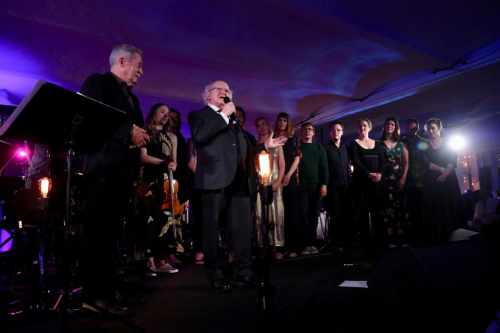Speech at a lunch hosted by Mr. Michael Kretschmer, The Minister President of Saxony and The Lord Mayor of Leipzig, Mr Burkhard Jung
LEIPZIG CITY HALL, THURSDAY, 4TH JULY, 2019
Thank you Minister President Kretschmer for your very warm words of welcome.
Minister President Kretschmer, Lord Mayor Jung and friends, thank you also for the warm welcome that that you have all extended to me, to my wife Sabina, to our Deputy Prime Minister, Tánaiste Simon Coveney, and to all of my delegation in Leipzig here today.
I am delighted to be here in this exquisite room in Leipzig’s historic Neue Rathaus, and I am very happy to be here in the State of Saxony – a first visit by an Irish President to your State. It is not my own first visit and I am delighted that I have the opportunity to return in my capacity as President of Ireland to see, at first hand, the rich cultural and economic vibrancy of your city today and to mark also the 30th anniversary of the peaceful protests which led to the reunification of Germany.
Leipzig and its people are forever and indelibly linked with those dramatic and historic days.
Tomorrow, I will visit Würzburg in Bavaria, historically connected to Ireland through the Irish monk, St. Kilian, who visited there in the 7th century.
However, I understand that a monastery of Irish monks also existed near the old historic trading route, the Via Regia, here in the heart of the city of Leipzig in the
16th century. These are just two examples of the early and rich historic relationship that Ireland has enjoyed with Germany.
This is a relationship that has been forged over many centuries through the exchange of our peoples, of our ideas, of our arts and culture, and more recently through our shared membership of the European Union.
It was really moving to have the opportunity to view the Irish language manuscripts of Whitley Stokes earlier today and to learn of the hidden network of sorts that existed between Irish and Celtic scholars in Berlin and in Leipzig at the turn of the 19th century, at the time our own Gaelic revival.
I am so pleased that the study of the Irish language, Irish culture and literature continues in Leipzig today and I would like to acknowledge the vibrancy of those students with whom I met with earlier, and their Professor Dr Sabine Asmus, driver of the study of the Irish language programme in the University, and to welcome the affinity which they hold towards Ireland today.
It is these affinities and these connections between the diverse regions, cities and states all across Europe which make Europe the beacon for tolerance and for shared understanding and shared values which it is today.
We must continue to defend, maintain, improve and promote the core values on which the Union is founded: democracy, cohesion, shared prospects, human rights and the rule of law. We must also continue to play a leading role in tackling the climate crisis which is surely the most pressing existential threat we face at this point in the Anthropocene.
Ireland’s home is and will remain at the heart of the European Union, together with our great friends in Germany. We will work for the creation of a social Europe of which our citizens can be proud. And we look forward to continuing to deepen this relationship between Ireland and Germany and between Ireland and Saxony in the years ahead.
Here in Leipzig today, in this city of Bach, in this city of such rich culture and history, I salute the journey that you have made and look forward to continuing that journey alongside you as fellow members of the European Union.
Go raibh míle maith agaibh go léir.


